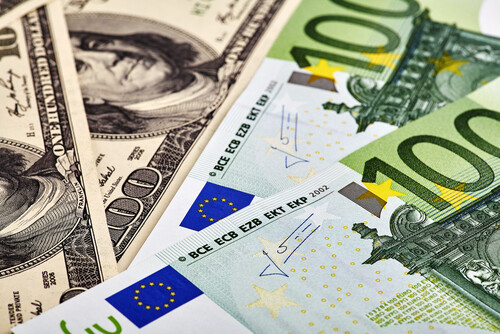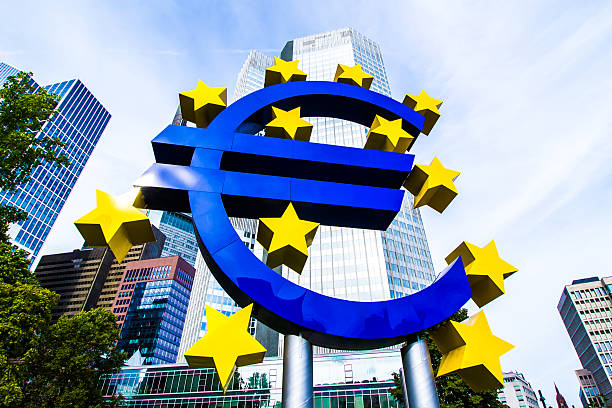EUR/USD tumbles below 1.0800 on Trump’s tariff plan

- EUR/USD depreciates to around 1.0780 in Friday’s Asian session, down 0.20% on the day.
- Future Fed policy decisions are still data-dependent after a 25 bps rate cut on Thursday.
- Trump’s proposals to raise tariffs and rising bets on ECB rate cuts exert some selling pressure on the Euro.
The EUR/USD pair plunges to near 1.0780 amid the renewed US Dollar (USD) demand on Friday during the Asian trading hours. Also, Donald Trump’s proposals to raise tariffs weigh on the Euro (EUR) against the Greenback. Traders await the advanced US Michigan Consumer Sentiment data for November for fresh impetus, along with the speech from the Federal Reserve (Fed) Michelle Bowman on Friday.
As widely expected, the US Fed cut its key interest rate by 25 basis points (bps) at its November meeting on Thursday. The US central bank does not want to see any further weakening of the labor market and continues to expect that inflation will sustainably decline to the Fed's 2% target. Therefore, the Fed is expected to lower interest rates further at the next few meetings, but the timing remains uncertain as the Fed will continue assessing data to determine the "pace and destination" of interest rates.
Trump has vowed a 10% tariff on imports from all countries, exerting some selling pressure on the Euro as the European Union has the second-largest trade deficit with the United States globally and is the largest exporter to the US, per JPMorgan.
Furthermore, the European Central Bank (ECB) is seen cutting rates at a faster pace than the Fed. This, in turn, could drag the shared currency lower against the Greenback. The ECB has already reduced rates three times this year as inflation risks in the Eurozone ease faster than expected. The rising expectation of another rate reduction continues to undermine the EUR in the near term.
Euro FAQs
What is the Euro?
The Euro is the currency for the 19 European Union countries that belong to the Eurozone. It is the second most heavily traded currency in the world behind the US Dollar. In 2022, it accounted for 31% of all foreign exchange transactions, with an average daily turnover of over $2.2 trillion a day. EUR/USD is the most heavily traded currency pair in the world, accounting for an estimated 30% off all transactions, followed by EUR/JPY (4%), EUR/GBP (3%) and EUR/AUD (2%).
What is the ECB and how does it impact the Euro?
The European Central Bank (ECB) in Frankfurt, Germany, is the reserve bank for the Eurozone. The ECB sets interest rates and manages monetary policy. The ECB’s primary mandate is to maintain price stability, which means either controlling inflation or stimulating growth. Its primary tool is the raising or lowering of interest rates. Relatively high interest rates – or the expectation of higher rates – will usually benefit the Euro and vice versa. The ECB Governing Council makes monetary policy decisions at meetings held eight times a year. Decisions are made by heads of the Eurozone national banks and six permanent members, including the President of the ECB, Christine Lagarde.
How does inflation data impact the value of the Euro?
Eurozone inflation data, measured by the Harmonized Index of Consumer Prices (HICP), is an important econometric for the Euro. If inflation rises more than expected, especially if above the ECB’s 2% target, it obliges the ECB to raise interest rates to bring it back under control. Relatively high interest rates compared to its counterparts will usually benefit the Euro, as it makes the region more attractive as a place for global investors to park their money.
How does economic data influence the value of the Euro?
Data releases gauge the health of the economy and can impact on the Euro. Indicators such as GDP, Manufacturing and Services PMIs, employment, and consumer sentiment surveys can all influence the direction of the single currency. A strong economy is good for the Euro. Not only does it attract more foreign investment but it may encourage the ECB to put up interest rates, which will directly strengthen the Euro. Otherwise, if economic data is weak, the Euro is likely to fall. Economic data for the four largest economies in the euro area (Germany, France, Italy and Spain) are especially significant, as they account for 75% of the Eurozone’s economy.
How does the Trade Balance impact the Euro?
Another significant data release for the Euro is the Trade Balance. This indicator measures the difference between what a country earns from its exports and what it spends on imports over a given period. If a country produces highly sought after exports then its currency will gain in value purely from the extra demand created from foreign buyers seeking to purchase these goods. Therefore, a positive net Trade Balance strengthens a currency and vice versa for a negative balance.








